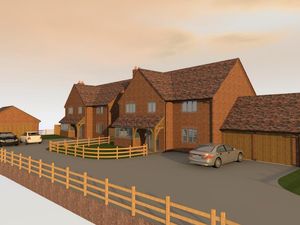Council is unfairly blocking farmers' plans
For anyone with even half an eye on current affairs, it will be well known that Britain faces an acute housing shortage.
Among the various government pledges to tackle the issue, including an increase in house building, the General Permitted Development Order was introduced in 2015. In essence, this order meant that provided some fairly basic criteria were met, applicants could make changes to buildings, or apply for change of use without the need for planning permission. Applicants merely had to submit a prior notification to the local authority.
For farmers, this relaxation of the planning laws was heralded as the perfect opportunity for farms to diversify and in doing so, increase the stock of residential properties across rural Britain. Permitted development allows for the change of use of agricultural buildings to various uses including residential and office use.
Further updates now also mean that farmers can erect agricultural buildings up to a size of 1000sqm, an increase from the previous 465 square metres threshold, without the need for a full planning application.
For change of use to residential, otherwise known as Class Q, the main qualifying criteria are:
- The site has to be in agricultural use as part of an established agricultural unit
- The cumulative floorspace of the building changing use cannot exceed 450sqm
- The number of dwellings developed across the site cannot exceed five
- Where the site is occupied under an agricultural tenancy, express permission from the landlord must be sought
- The change of use must not extend beyond the original dimensions of the building
- No significant external changes can be made.
However, local authority attitudes towards permitted development can vary substantially depending on which part of the country you reside.
For some, the process is as simply as notifying the local authority of the works being carried out and it is not unheard of for open sided Dutch barns to sail through the process to residential conversion with little to no opposition from the planners, despite not always being obviously fit for conversion.
However, Madeleys are becoming increasingly concerned with the perception of permitted development in the eyes of the Shropshire planning authority with the vast majority of projects being unjustly halted on the grounds that sites are not in sustainable locations or that buildings are not fit for conversion (and would therefore require substantial works going beyond permitted development).
With the uncertainty surrounding Brexit and the ever-increasing housing shortage, it has never been more important for farm businesses to look at ways of diversifying.
Madeleys hope that Shropshire planning authority can take a more pragmatic approach towards permitted development, to allow farmers to carry out the sort of projects the General Permitted Development Order was intended to promote and achieve.
Aidan Greenway is a graduate survey at Madeleys





